
Exposé Online
What's old
Exposé print issues (1993-2011)
- 1 (October 1993)
- 2 (February 1994)
- 3 (May 1994)
- 4 (August 1994)
- 5 (October 1994)
- 6 (March 1995)
- 7 (July 1995)
- 8 (November 1995)
- 9 (March 1996)
- 10 (August 1996)
- 11 (February 1997)
- 12 (May 1997)
- 13 (October 1997)
- 14 (February 1998)
- 15 (July 1998)
- 16 (January 1999)
- 17 (April 1999)
- 18 (November 1999)
- 19 (May 2000)
- 20 (October 2000)
- 21 (March 2001)
- 22 (July 2001)
- 23 (December 2001)
- 24 (April 2002)
- 25 (September 2002)
- 26 (February 2003)
- 27 (August 2003)
- 28 (December 2003)
- 29 (April 2004)
- 30 (September 2004)
- 31 (March 2005)
- 32 (September 2005)
- 33 (May 2006)
- 34 (March 2007)
- 35 (January 2008)
- 36 (October 2008)
- 37 (July 2009)
- 38 (July 2010)
- 39 (Summer 2011)
Features
A Beginner's Guide to 5uu's —
The Dave Kerman Interview
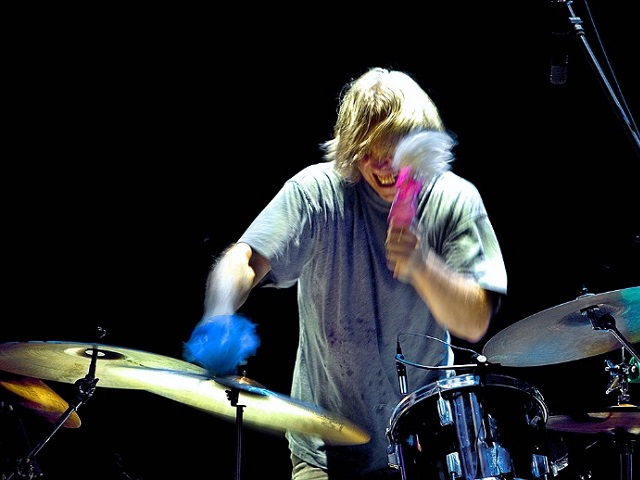
It certainly was a big surprise to discover that 5uu's would be playing here in Grenoble! They were one of the bands I had always dreamed of seeing on stage, even though I had kept my expectations low that I might ever see this Californian band in France. Grenoble would be their only French date of this six week European tour so we were lucky not to miss it. The "102" is used to program experimental, industrial, concrete music and underground movies. It was the only venue that could have invited a band like 5uu's over here but compared to some artists that the "102" usually features, the American quartet is nearly a pop band. Mastermind David Kerman kindly spent some time chatting with me before the gig, a perfect opportunity to get more information about a band we don't know much about.
by Jean-Luc Putaux, Published 1995-07-01
We have very little information about 5uu's. There are not many articles about the band in prog fanzines since a lot of them consider you on the fringe of mainstream progressive rock.
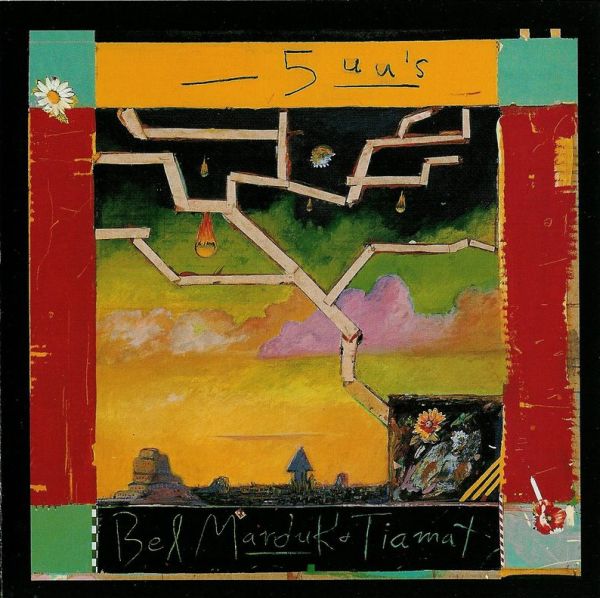 I don't know really what constitutes the term "progressive." I just view the band as a rock band.
I don't know really what constitutes the term "progressive." I just view the band as a rock band.
How would you introduce your music to somebody who would not know this style, a producer for instance or a concert promoter?
It is really just rock music, and then you have to let the music speak for itself. I mean, if you had asked Jimi Hendrix what kind of music he was playing, that's what he would have said: rock music. If you think about it, I don't see that a lot of progression was done in rock music in fifteen years. I have a friend who is thirty. He says that everything has been done and that all you can do is rehash old ideas. I don't like to think I am like that. I don't think that I am, but I don't see a lot of stuff progressing a lot. I don't like the term. You have to let the music speak for itself. The trick about it is to get people listening and let them make their own decision as to what it means to them. What is progressive to one person may not be progressive for another.
Today there are not only the public, the fans and the musicians. There are also the media, the record companies and the radio people who probably won't reason like you do. It is difficult not to take them into account. Are you completely aside of the big music business?
No. We have a record label that's behind us and takes good care of us. We have a plethora of musical ideas. We have to work together as a rock band and it's basically what we are, a rock band. I don't want to use the term "progressive" and it seems that a lot of people want to make us use it. If you play a time signature that is not in 4/4 or if you play in places that are not huge venues with people dancing, it seems that they want to say you're away from the mainstream. I don't know where we are exactly when it comes to the mainstream thing but I'd rather not use the term "progressive." I think it's something that went out a long time ago. It was a style of music that does not exist anymore and if it does, it's for people holding on to something that's old.
 In which way did the bands of the 70s have an influence on your own music?
In which way did the bands of the 70s have an influence on your own music?
I would say because many of them dealt with rhythms differently than the normal rhythmic sense of dance. In the 70s, disco was making a lot of money. It was all regimented dance, a certain amount of beats per minute and certain other bands weren't interested in that. Symphonic rock bands were not interested so much if people danced to their music. They tried to compose music as they thought was interesting. In that respect, I'm not thinking about a regimented beat per minute or about a time signature. I'm thinking more about melodies and words.
Which progressive rock bands from that time did you like?
I liked a lot of different ones. Mostly Rock In Opposition bands, Gentle Giant, that kind of band. But I also like classical music, jazz, rock music, world music. I dislike less music than I like. I do enjoy a lot of different stuff. I don't like much country and bluegrass though.
So what is your musical background as far as training?
Not much. I'm a self-taught musician. I was in a marching band at school and so far I kind of think of everything with a marching spirit to it.
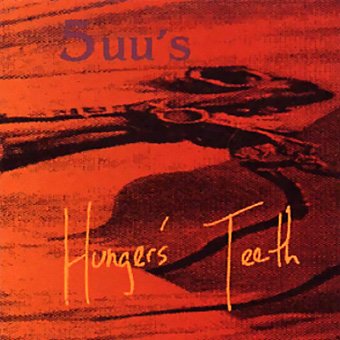 On Hunger's Teeth, you play various instruments. How many of them can you play?
On Hunger's Teeth, you play various instruments. How many of them can you play?
I play drums, a bit of guitar, a little bit less keyboards, and sing even less. I started composing on guitar too. I used to compose a lot on keyboards, melodies first and then words. But now, I'm writing words then I'm composing on guitar. It's different. The new stuff is much different from Hunger's Teeth.
Many bands that play a style of music similar to yours, like Univers Zero or Eider Stellaire, are mainly led by drummers. It is perhaps the only kind of music where drummers compose so much. It is not common in the other areas of rock where guitar or keyboard players are the main composers.
I think a lot of that has to do with Christian Vander. He has influenced a lot of drummers and opened a lot of locks. I can compose. The drummer doesn't have to sit behind the drums all the time. I can write music. People will like what I did. But many drummers study a lot. They study the technique of playing drums. They learn the rudiments, exercises. A lot of them stay right within the drum set and don't try to think beyond that, into poetry or images that they hear and then try to emulate. In many ways, Christian Vander showed that he could have a vision and that he could give it to other people. He got a plethora of musicians and he could relate his vision to them. A lot of drummers can't do that, or at least couldn't before him. I think he really opened a lot. He's one of my favorites and Magma is probably the best band that ever was.
How would you define yourself? Are you basically a drummer?
I would think I'm equal parts of a composer and a lyricist and a drummer. I don't spend as much time as I should rehearsing and practicing, as I spend a lot of time writing music as well.
It has been said that on your last album, your drumming has changed somehow, was simpler or more straightforward on some tracks.
I've heard that too and I completely disagree! I don't know why they would say that! Some think, if anything, that it was a less inhibited drumming. Some think it was different in the sense we used more of a makeshift drum set, with hung cymbals all moving around. It wasn't a very normal looking drum set but I did not by any means play normally or straightforwardly.
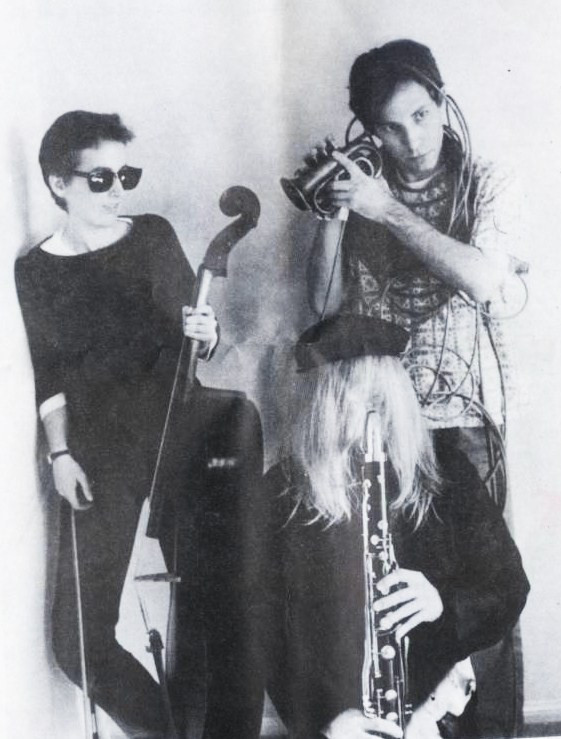 You are part of a group of musicians playing in various bands. Could you clear out a little this nebula? How is it organized?
You are part of a group of musicians playing in various bands. Could you clear out a little this nebula? How is it organized?
Well, we'll have to do a little history. Basically, there is a group of people from California, mostly around the L.A. area, called C.O.M.A. (Californian Outside Music Association). It was formed by two people who wanted to get a lot of different musicians together, who were interested in the same type of music, to put on festivals, radio shows, make a compilation record, help each other. Through that, many people met and that's how the 5uu's got involved with other bands like Motor Totemist Guild, that was an eclectic chamber group. We, being a rock band and them, a chamber group, the confluence of the two was a sort of rock chamber group called U Totem. Then, as a result of that, we met the people of Thinking Plague from Colorado. There was another similar musical network there. Then, some people started to move from Denver to L.A. We were almost incestuous. We played on each other's records, just because we were friends and liked each other's music.
Each band has a major composer.
Yes. 5uu's is my band. James Grigsby has Motor Totemist Guild, Mike Johnson has Thinking Plague, Susanne Lewis has Hail. It's almost as if there were one band in a way but if somebody writes on a song, he says I'll have it in this band.
It's better to have several bands than just one and share the composition work.
I think so, because it will be clearer conceptually. I think it's easier that way. Somebody says "I have a vision." He'll take care of the song, produce it and have something called his own. Motor Totemist Guild does not sound like 5uu's. U Totem does not sound like Thinking Plague. It's more varied that way. You get more of a bloom. One of you writes music for an album and the other musicians offer their help to record it.
 Is there no frustration?
Is there no frustration?
No, because you take direction from somebody else. In Thinking Plague, I will take direction from Mike or in Hail, I will take direction from Bob or Susanne. In U Totem, somebody might take direction from me or James. You have to trust that person who is a friend you respect musically. We all have a vision and know how it should sound like. This works pretty well. It would be difficult to do that in the mainstream rock business because you would have to pay for five bands instead of one!
Well, if you look at it from another way, if somebody wants to put on a big rock festival and have five bands... you would all be tired at the end of the day!
Oh, I've done it ! Not with the whole five, only a couple. It's not tiring if you're having fun. It would be nice if somebody would have all four or five bands all together. I don't think it would be that expensive to finance.
What is the specificity of each of these bands?
I would say that we are all very similar in the sense that we're all trying to do something that each one of us feels very personal, suit our personal style of musical language. That's the similarity between us. To try to say that this one is progressive, this one is experimental, this one is classical would be beyond the point. It's just a personal voicing of the vision that each composer sees.
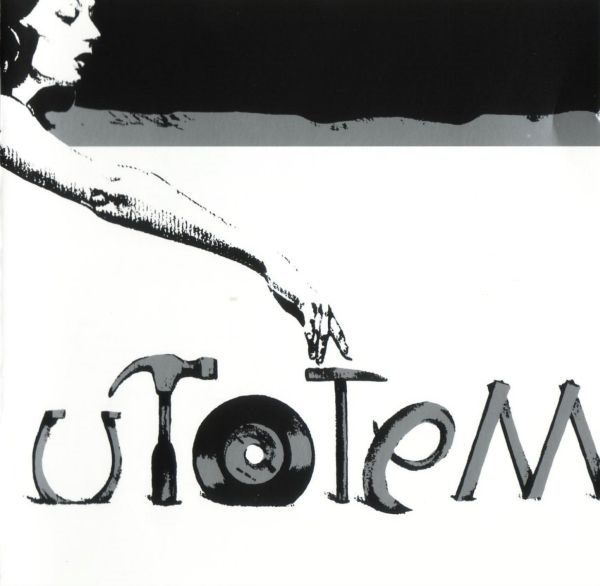 What is the proportion of written music and improvisation in those bands?
What is the proportion of written music and improvisation in those bands?
None of the groups improvizes. I think U Totem improvised once for five minutes in Germany. Many piano or flute cadenzas are all written down on paper and performed night after night in the same way. As far as I'm concerned, improvisation is not the point of my music. I haven't done it for many years and I find composing music and having other people play the composed music a lot more fulfilling. Some people are very good at it. I think I was OK at it for a while but it was not my strong point.
"Truth, Justice and the American Way," on the last CD, is one good example of how complex and difficult to follow some of your songs can be. Was it completely written on paper?
That was a collaboration with the keyboard player, Sanjay Kumar. The first part of the song, that he wrote, was completely written down on paper. Usually, it works this way: I write something on the keyboard and record it on the tape deck, on around six tracks. Then I give it to somebody else in the band and we all elaborate from that until we have something. So it's usually not written on paper for the 5uu's, whereas for Thinking Plague or for U Totem, it is usually composed on paper or the band is building up to a certain extent. The first two 5uu's records were completely done in a strange way in the sense that I would go in sometimes with nothing more than time signatures and play drums. Then we started putting chord patterns over the time signatures. These are two different ways but it's not improvised more than it's written down on paper. Sort of in the middle.
Sometimes, the complexity of the music makes it difficult to guess if it's structured or not. For the listener, it can be a bit disturbing. Some people even say that your music is weird.
Disturbing? But entertaining at the same time, I hope! Weird? I don't see why. I'm a totally normal guy. (laughs) It's probably because the music of 5uu's or U Totem is so unusual compared to the music that we hear everyday. Perhaps that's exactly what they mean by weird: it's different. I don't mind being called weird if they mean it in the context of different. But I'm totally normal!
From the three albums, Hunger's Teeth features your most intense music, I would say.
It was the most composed and it was pretty much a new band including Bob Drake from Thinking Plague. He plays more aggressively than the other people did and he also engineered it pretty aggressively. I would also say that it is more intense.
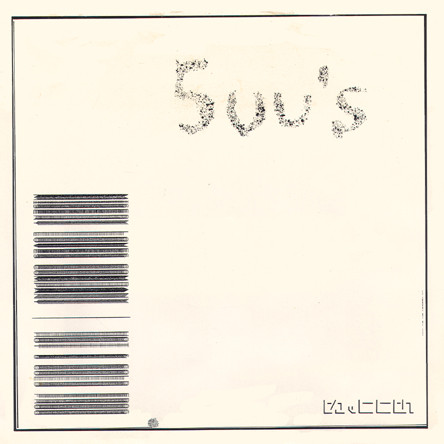 Let's talk about your lyrics. What are their role in your music?
Let's talk about your lyrics. What are their role in your music?
Actually, I think that what I try to do is come up with an idea lyrically and then make it melodically work within the timbres of the English language which I'm speaking as well, try to make it valuable by setting music to it. I think a lot of times, the music is there absolutely to make valuable what the lyrics are saying.
Are the lyrics absolutely necessary to your music?
Absolutely. I wouldn't consider doing an instrumental record.
Do you build 5uu's album on particular concepts lyrically?
Every 5uu's album has some sort of thread that's stranded to it. The first one had a chordal theme that just kept going like a song circle chord over. The second one had a time signature that kept repeating. The third one, Hunger's Teeth, has this whole concept of the beast of burden. The next one, which we are recording now has a melodic structure that keeps repeating. So there is a concept to it. Sometimes, it's loosely threaded but usually there is a concept to it only known to me. But some people somewhat will get the idea of what I'm talking about. Elements was more about the Earth, the world we live in. The first album used some African creations of means to discuss the birth of intangible themes which was difficult as a lyricist, especially starting out as I was. It's easy enough to talk about a table or a chair but to talk about things that people can't grasp is another matter. It is interesting to me that a lot of German or Poles or whatever did grasp it and could understand it even through the translation. A lot can get lost in a translation.
Some tracks of the last album are like soundtracks. You express your emotions through music and words but one thing seems to be missing: images.
It's strange because when a song is mixed, you will have a completely different visual image. It's like looking at a 12" record jacket: you see an image of what this is giving to you. Once the song is mixed, this is totally different of what you had in mind when you wrote it. You can have something dark, black or bleak and, by the time it's mixed, it can be shiny.
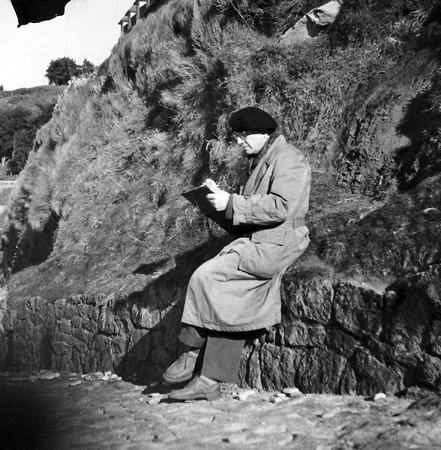 I see what you mean. When I listen to big church organ music, even though the intent of the composer was to praise the greatness of God or convey some angelic view, for me the music sounds apocalyptic and a lot darker.
I see what you mean. When I listen to big church organ music, even though the intent of the composer was to praise the greatness of God or convey some angelic view, for me the music sounds apocalyptic and a lot darker.
Like Messiaen. And he could write like bird songs. Who knew what he was thinking when he was sitting by the Grand Canyon and imagined the notes. He saw the birds, he wrote the notes, we go to the symphony, we see the flute player. It's a completely different visual image than the one the composer had.
It's better to close your eyes...
...And use your imagination. That's one thing that music has over video. How many times can you watch a Led Zeppelin video? Five or six times? How many times can you listen to Led Zeppelin records? Thousands! That's the important thing about music: it can be different every time you listen to it but the vision of an image will always remain the same.
What about this new tour?
It is six weeks long and we visit France, Switzerland, Austria, Slovenia, Italy, Germany, Holland, Belgium and the Czech Republic.
Do you plan to go and play in other countries this year?
Probably not this year but we can go early next year. Maybe. I don't know. It's hard to say.
You seem to like Europe. Is it for the "network" or do you find a special attraction from the Europeans to your music?
No, I think that people are basically the same everywhere. It's just that the networking is better here. If you're trying to allude to America’s musical stagnancy, I would agree but to be honest with you, I don't have enough of the emotional attachment to Europe.
Where do you live?
I live in France. The opportunity was there to work and further my career without needing to get a half-time job. I did not do it because there was no future for me in America. I really did it because there was a possibility of change and that kept me healthy and moving along, progressing.
Would you say there is an American feeling to your music?
Absolutely, especially on Hunger's Teeth. Listen to it. There's a Souza march, fireworks for the Fourth of July. It's very American. The first two albums are more European. Hunger's Teeth was something I attempted with a lot of Americana: the homage to pow wows, rock, American actors. It's an album of American standards and not European.
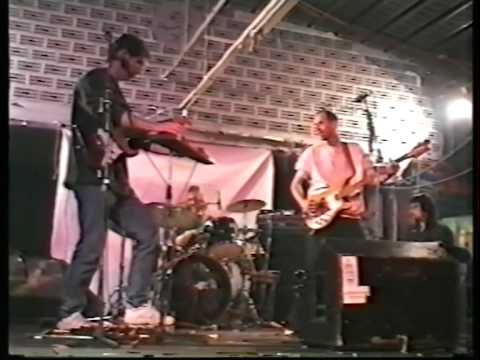 I felt there were twisted references to the American icons in Hunger's Teeth. For instance, the last track, "Traveler Waits for No One" begins with a merry pop melody but completely dissonant. "Bachelor Needle" too has a reference to jazz.
I felt there were twisted references to the American icons in Hunger's Teeth. For instance, the last track, "Traveler Waits for No One" begins with a merry pop melody but completely dissonant. "Bachelor Needle" too has a reference to jazz.
This one was originally a jazz tune and the interesting thing about that song in particular is I completely took it apart from this jazz piece, unstructured everything. The drum rhythms are structured out. Jazz is mostly improvized. I started out from an improvisional piece and had it completely stripped down to its basic bits. So it became a completely composed piece of Americana rock.
I would say that you unstructured some traditional musical stereotypes or icons. I often thought about Hunger's Teeth as what Yes on acid would sound like.
Some people made that comparison to Yes too but I just don't hear it.
It's probably partly due to the voice of Bob which has, at time, an uncanny resemblance with Jon Anderson's. It is not common.
I think it's just because of its high register and it doesn't have a lot of vibrato. But Bob is born with his voice and Jon Anderson his. If you would put them both in a room, they would not speak the same. Some other people also said that I played like Bill Bruford. Why?
I did not study your style long enough to tell but I would not say that it's similar to Bill Bruford's. Give me ten years and I'll tell you. By the way, how do you see yourself in ten years?
I will probably still be playing drums because that's what I've been doing for twenty. I see myself a little wiser. I see a big progression in a totally different direction.
5UU's live at the "102" Rue d'Alembert, Grenoble, France - 28/03/95
Concert Review
Listening to the music of 5uu's is a special experience, but now I'm sure that, as is often the case, seeing the band perform live is necessary to grasp their potential more fully. I knew the music from the three albums quite well, so my main fear was that the sound would not be good enough to catch all the intricacies of the music. Happily, I was wrong. The sound was loud, but not too much, and every musician could be heard distinctly.
This new incarnation of 5uu's consists in David Kerman (drums, backing vocals, and grimaces – also in U Totem), Robert Drake (bass, lead vocals, and dry humor – also in Thinking Plague and Hail), Mike Johnson (guitar, slide guitar, and backing vocals – also in Thinking Plague), and Scott Brazieal (keyboard – also in Cartoon and PFS). As Mike admitted, Scott and he had joined the other two at the beginning of March and only then had started rehearsing and learning the songs! As I asked him if they were difficult to memorize, he answered that he had been playing this kind of music for fifteen years, so he was used to learning quickly. It was only a question of training and tapping with the foot. Well, I certainly tapped during the whole show but I got quickly lost by the constant changes of time signatures, from the quiet and moody moments to the fast paced and intense sections.
Closing your eyes is not the point during this kind of concert. Watching the musicians perform and interact with each other is an important component of the pleasure you get from the show. Scott, situated behind his keyboard, accompanies his syncopated lines with dislocated movements of his body, his head being at times lower than his hands, like in some twisted Bill Evans parody! Mike is the most serious, concentrated on the complex interplay of his guitar lines with Scott's notes and Bob's vocal melodies. Bob's heavy bass playing contrasts with his uncanny high-register voice. With his boyish face, he always seems to sing out-of-tune child melodies. Then, 5uu's sound like a musical box gone mad (cf "Opportunity Bangs")!
Nevertheless, I must admit that David held most of my attention. He has a fascinating way of expressing the music with his body. His drumming is not restricted to marking the beats, it's a real language both from the rhythms he plays but also from the gestures he makes – it looks like a dance. Sometimes, he moves like an animated puppet, sometimes he rolls crazy eyes with a crooked smile, as if he wanted to demystify what we often tag as "serious" music and that, he insists, is only rock. It's exhilarating to see him put a tambourine around his head and furtively drum on it or when Bob sings parts of "Geronimo" in a paper cone made from the set-list sheet. This humor a-la Gentle Giant lightens up the more intense moments which are numerous. "Roan" is short but particularly dense, Mike's slide guitar illuminating the dark chord changes. "Lycanthrope" and "Warheads," two Thinking Plague songs that I was hearing for the first time, also pulse with an incredible energy.
I had brought along three friends who were absolutely not used to this kind of music. At first, I misinterpreted their lack of reaction as boredom, but soon I realized that they were as mesmerized as I was by what they were hearing and seeing. At the end of the concert, they were won over to the cause, and we all rushed to buy the Hunger's Teeth CD, Robert Drake's solo album, What Day Is It?, and chat with the musicians.
One time is not enough to get all what a concert by 5uu's has to offer and I really look forward to seeing them again very soon. There is no doubt that they are one of the finest progressive acts I've ever seen live. Oops! Sorry, David, if I used the "P" word...
Filed under: Interviews, Issue 7
Related artist(s): 5uu's, Dave Kerman
What's new
These are the most recent changes made to artists, releases, and articles.
- Review: Sterbus - Black and Gold
Published 2026-03-03 - Release: Janel Leppin's Ensemble Volcanic Ash - Pluto in Aquarius
Updated 2026-03-02 15:06:51 - Release: Janel Leppin - Slowly Melting
Updated 2026-03-02 15:05:27 - Release: Alister Spence - Always Ever
Updated 2026-03-02 15:04:11 - Release: Let Spin - I Am Alien
Updated 2026-03-02 15:02:41 - Review: Falter Bramnk - Vinyland Odyssee
Published 2026-03-02 - Review: Exit - Dove Va la Tua Strada?
Published 2026-03-01 - Review: Steve Tibbetts - Close
Published 2026-02-28 - Release: We Stood Like Kings - Pinocchio
Updated 2026-02-27 19:24:02 - Release: Stephen Grew - Pianoply
Updated 2026-02-27 19:20:11 - Release: Thierry Zaboitzeff - Artefacts
Updated 2026-02-27 00:16:46 - Review: Kevin Kastning - Codex I & Codex II
Published 2026-02-27 - Release: Zan Zone - The Rock Is Still Rollin'
Updated 2026-02-26 23:26:09 - Release: The Leemoo Gang - A Family Business
Updated 2026-02-26 23:07:29 - Release: Ciolkowska - Bomba Nastoyashchego
Updated 2026-02-26 13:08:55 - Review: Immensity Crumb - Chamber Music for Sleeping Giants
Published 2026-02-26 - Release: The Gatekeepers - Diary of a Teenage Prophet
Updated 2026-02-25 15:55:58 - Review: Mars Lasar - Grand Canyon
Published 2026-02-25 - Listen and discover: Mordecai Smyth will not break your back
Published 2026-02-25
